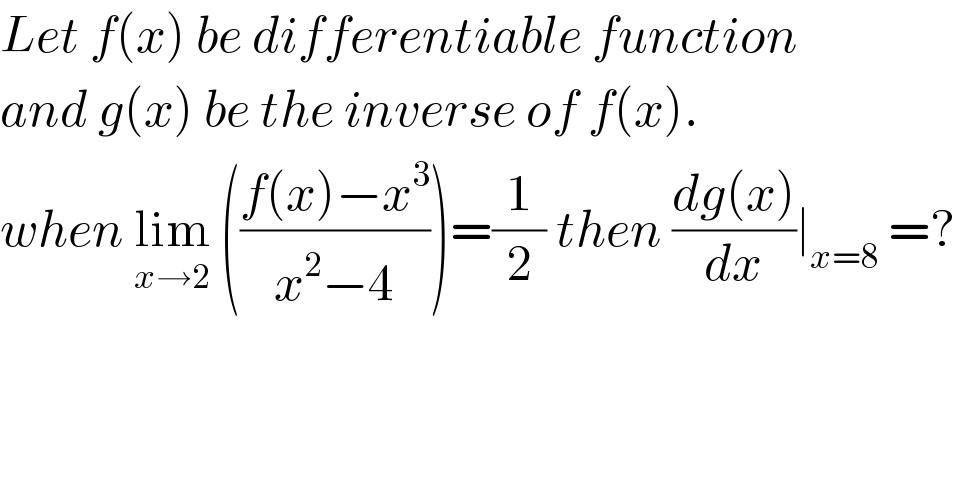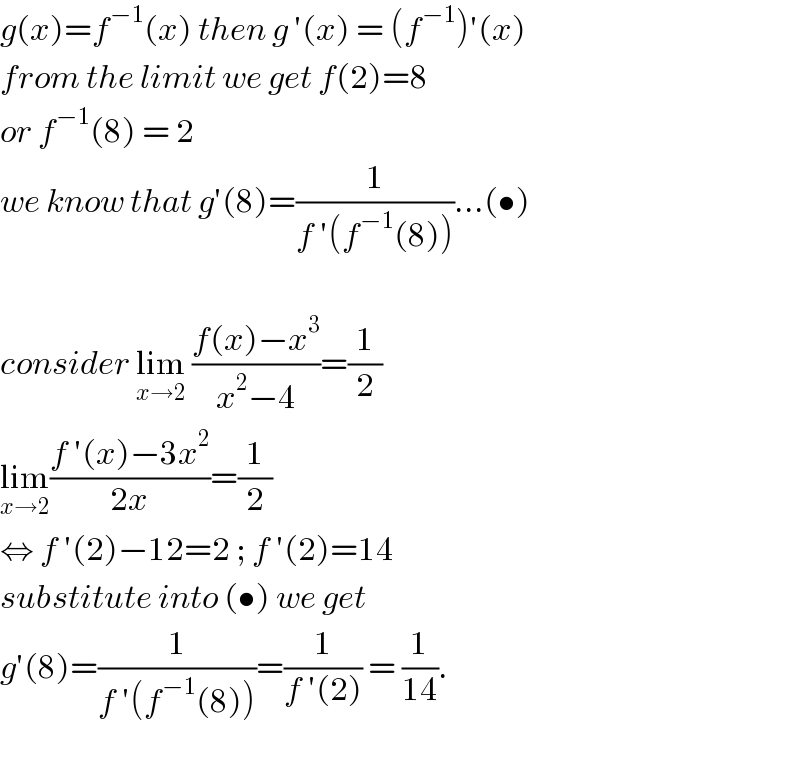
Question and Answers Forum
Question Number 123752 by liberty last updated on 27/Nov/20

Commented by benjo_mathlover last updated on 28/Nov/20

Answered by ajfour last updated on 27/Nov/20

Answered by bobhans last updated on 27/Nov/20

| ||
Question and Answers Forum | ||
Question Number 123752 by liberty last updated on 27/Nov/20 | ||
 | ||
Commented by benjo_mathlover last updated on 28/Nov/20 | ||
 | ||
Answered by ajfour last updated on 27/Nov/20 | ||
 | ||
| ||
Answered by bobhans last updated on 27/Nov/20 | ||
 | ||
| ||